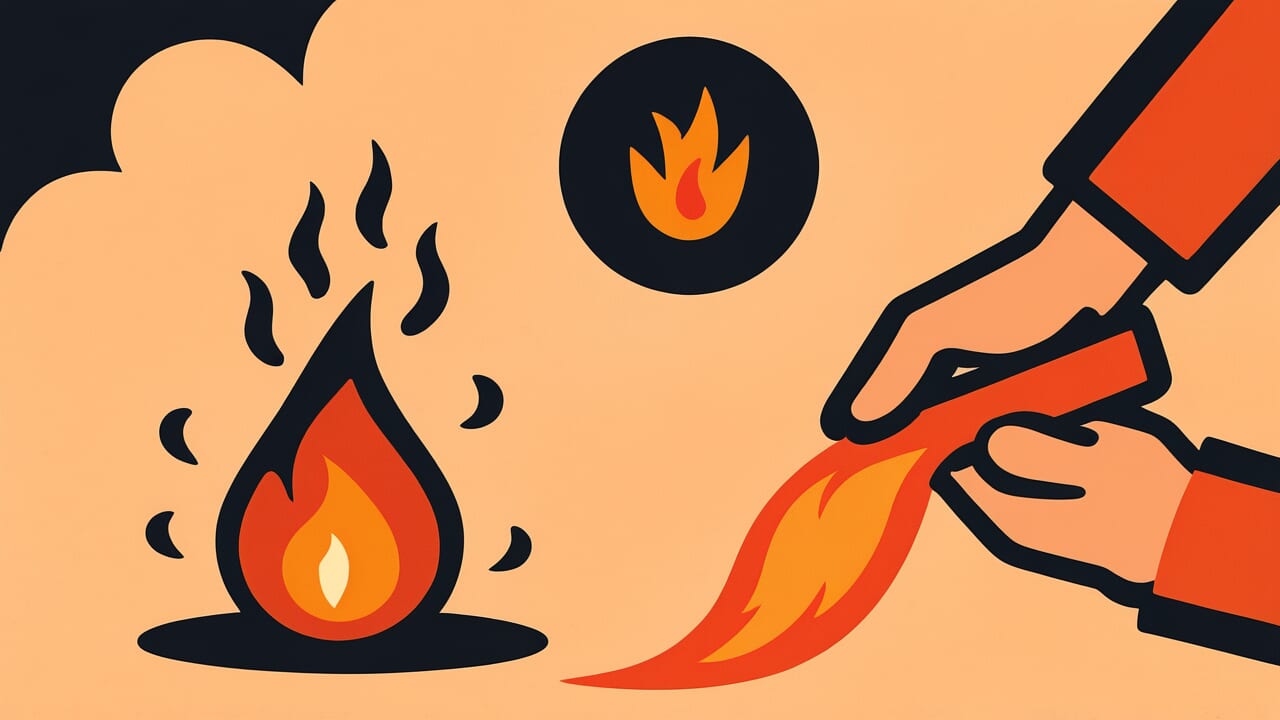How to Read “A lamp increases its light as it goes out”
Hī mesento shite hikari wo masu
Meaning of “A lamp increases its light as it goes out”
This proverb describes how people near death sometimes temporarily regain energy or show a final burst of vitality. It refers to the phenomenon where someone bedridden for a long time suddenly becomes alert just before passing away.
They might start talking clearly with family members or even eat food again. These moments can seem like recovery, but they’re actually signs that the end is near.
People use this expression to help others understand that such temporary improvement isn’t true recovery. It’s more like the final brightness of a lamp before it goes dark.
This phenomenon is still recognized in modern medical and caregiving settings. Families naturally feel hopeful when they see these improvements.
But this proverb gently reminds them what this brightness really means. It helps prepare hearts to cherish these final moments with compassion and understanding.
Origin and Etymology
This proverb likely came from observing how oil lamps behave. Before the Edo period, people used oil-burning lamps called andon and tomyo every day.
These lamps had a distinctive trait. They would shine brightest for just a moment right before the oil ran out completely.
When oil gets low, the wick burns through the last drops all at once. This creates a flame brighter than usual. People saw this happen night after night in their homes.
They noticed the similarity between this final burst of light and what happens to dying people. The connection felt natural and meaningful.
People have long known about the phenomenon of dying patients suddenly becoming alert. Modern medicine calls it “terminal lucidity” or “end-of-life rally.”
Ancient people tried to understand this by comparing it to lamp behavior. The metaphor helped them make sense of something mysterious and profound.
This proverb shows how carefully our ancestors observed everyday objects. They transformed simple observations into wisdom about life and death.
It captures the Japanese tradition of finding deep truths in ordinary phenomena. This expression concentrates generations of insight into a single vivid image.
Usage Examples
- Grandfather was bedridden until yesterday, but this morning he suddenly perked up and started telling old stories. This might be a case of a lamp increases its light as it goes out.
- The passion my teacher showed during his final lecture after years of illness was like a lamp increases its light as it goes out.
Universal Wisdom
This proverb speaks to a universal truth about the mysterious power dwelling in life’s final moments. Why do people show this temporary brightness right before death?
Perhaps it’s an instinctive force within life itself, burning completely until the very end.
As people weaken, they gradually lose energy. But at the final moment, they sometimes gather all remaining strength into one point.
They recover their former brightness, as if concentrating everything they have left. This goes beyond mere physiology. It’s a moment that reveals the dignity of life itself.
This proverb has endured because people found deep meaning in this phenomenon. The final brightness becomes proof that someone lived.
It’s also a last message to those left behind. Even amid the sadness of parting, this moment captures the person’s essence most completely.
By comparing this to a lamp, our ancestors created more than fear of death. They built a culture that honors the final brightness.
They saw life’s end not just as fading away, but as something beautiful that shines until the last moment. This wisdom offers quiet comfort and courage to everyone facing death.
When AI Hears This
A lamp brightening before going out is actually a special chemical reaction that occurs when fuel runs out. The last oil in the wick gets drawn up rapidly through capillary action.
More fuel than usual burns in a short time. This is a perfect example of what thermodynamics calls a “dissipative structure.”
A dissipative structure is a system that maintains order by taking in energy from outside. When the energy source runs out, it temporarily releases energy intensely.
What’s interesting is that this phenomenon is probabilistically inevitable. A lamp as a system always moves toward increasing entropy, or disorder.
While fuel remains, it burns steadily. But when fuel runs out, the system rapidly approaches equilibrium—the “extinguished state.”
During this transition period, remaining energy concentrates and releases at one point.
This follows the same principle as a supernova explosion. Stars shine through nuclear fusion, but when fuel runs out, they undergo gravitational collapse.
At that moment, they shine brighter than an entire galaxy. Human cells work similarly. Just before apoptosis, or programmed cell death, metabolic activity temporarily increases.
In other words, the final brightness isn’t a sentimental phenomenon. It’s a physical law that closed systems inevitably follow.
Lessons for Today
This proverb teaches us a profound lesson: essence reveals itself most clearly at the moment of ending. This truth applies not just to death, but to all endings.
The final stage of a project. The end of student life. Retirement from a long career. In these moments, people often perform better than ever before.
Everyone has experienced heightened focus before a deadline. That’s a moment of a lamp increases its light as it goes out.
Modern society tends to avoid endings. But this proverb teaches that endings have their own beauty and value.
Because it’s the last time, you can give everything. Because there are limits, you can shine. Thinking this way, every ending in life gains special meaning.
When saying goodbye to someone important, carefully imprint that final brightness in your heart. And when you end something yourself, choose to shine until the very last moment.
That’s what it means to live as a human being.



Comments